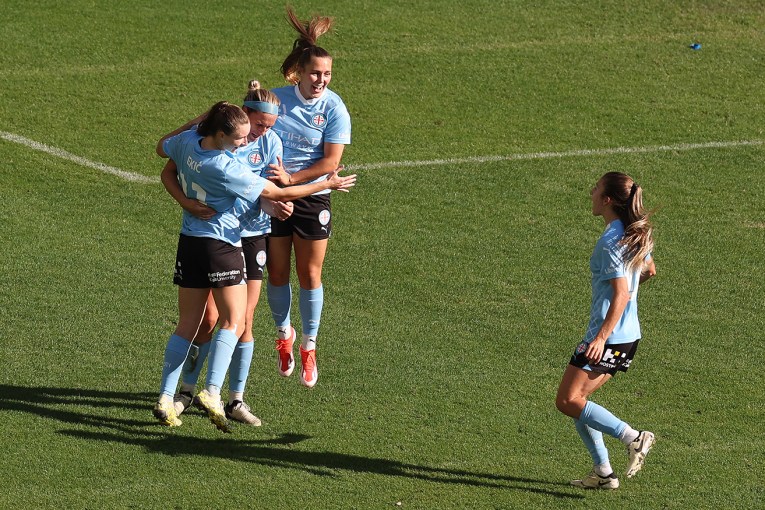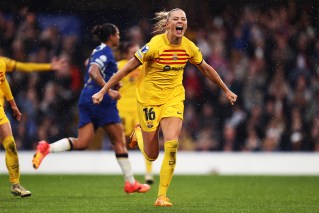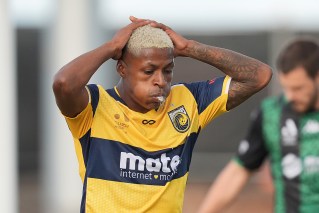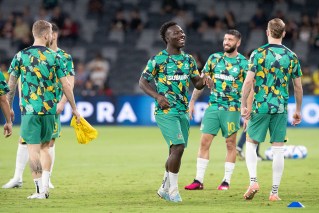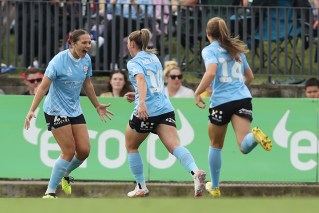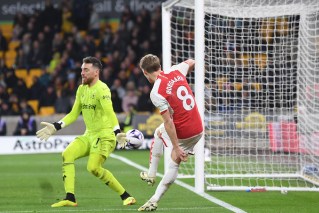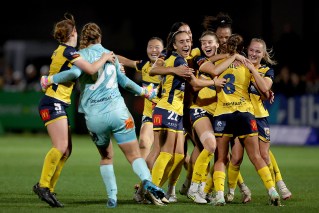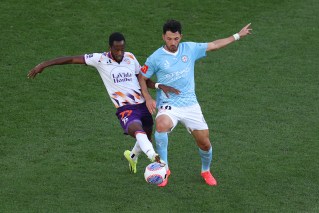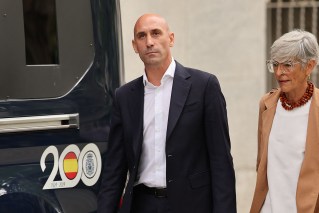Socceroos coach turns eyes towards the Olympics
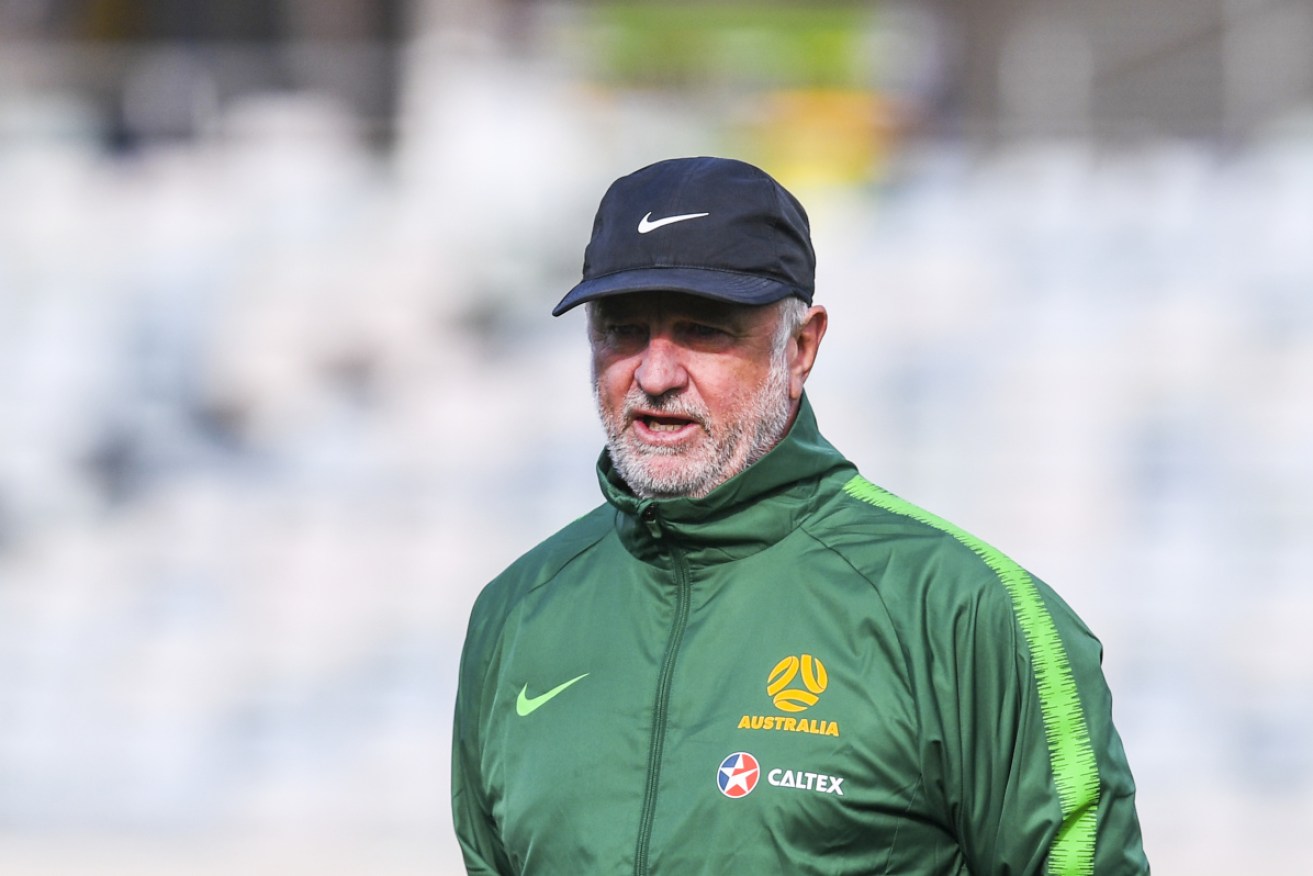
Socceroos coach Graham Arnold is under investigation for a possible COVID isolation breach. Photo: AAP
It’s been 12 long years since Australia’s men last qualified to compete in football at the Olympic Games and Socceroos coach Graham Arnold says it is a stepping stone that will unveil the next generation of stars.
Unlike in women’s football, in which the Olympics serves as the biggest prize on offer outside of the World Cup, men’s football at the Olympics is restricted, with the exception of three overage players, to U23 tournament status.
Nonetheless, they have still shown themselves to be a valuable proving ground for future global icons.
Arnold named his 23-player squad for the AFC U23 Championships – which serves as a qualifier for the Olympics – on Monday saying qualification would “be a huge feat.”
“The research that I’ve done and presented to the [FFA] board and presented to the A-League owners shows that since 1992 – when the Olympics became a U23 competition – it’s produced six or seven top Socceroos.
“[Mark] Bresciano and [Vince] Grella didn’t play for the Socceroos until they were Olympians. It’s the next phase in the journey for these kids to become Socceroos.
I truly believe from what I’ve seen – and that’s why I took the job, to work and get to know them mentally – I believe that by the end of 2020 there will be five kids that will be part of the Socceroos squad.
“So, it’s very important.”
Fans at the Sydney Olympics were gifted once-in-a-lifetime sneak previews of Ronaldinho, Andrea Pirlo, Gennaro Gattuso, Samuel Eto’o and Xavi before they became global megastars, while all-time-great Lionel Messi won gold with Argentina in 2008.
Finishing fourth at Barcelona 1992 with the likes of future legends Ned Zelić, Tony Vidmar, Paul Okon, Tony Popovic and Mark Bosnich in the squad, Australia then began a run of five straight Olympic Games.
Yet a move to the Asian Football Confederation has coincided with Australia’s Olympic dreams being stymied; failing to qualify for 2012 or 2016.
Arnold – who coincidentally was in charge the last time Australia qualified in 2008 – acknowledges there are short-term ramifications for the local competition.
With the A-League not observing international breaks in 2019/20, the 14 A-League players who are part of 23 set to fly out on Monday evening in preparation for the Championships will potentially miss a month of club football.
Clubs like Melbourne City, who are losing starting goalkeeper Tom Glover, and Wellington Phoenix, who are losing dynamic attacker Reno Piscopo, may be forced to scramble for replacements during the crucial January stretch of the season.
According to Arnold, though, clubs were aware of the greater good that came with releasing their players.
“I went out last September, in 2018, and explained to all the coaches and asked for their support in rebuilding the Olympic team,” Arnold explained.
“It’s not part of my job, not part of my contract but I felt that it was something that I needed to do for the development and for the depth of the Socceroos.
“The coaches from last year were across it and aware of it.
“The only ones this year that have said something about it have been the new coaches that were unaware of it in Erick Mombaerts, Gertjan Verbeek and Robbie Fowler.
“But I’ve spoken to them since and they’re all clear on it now and there are no problems at all.”
Australia is set to commence their AFC U23 Championship campaign against Iraq on January 8 before further group games against Thailand and Bahrain.
A minimum third-place finish at the tournament is required to secure qualification for Tokyo 2020.
OLYROOS SQUAD
Keanu Baccus, Daniel Bouman, Trent Buhagiar, Gabriel Cleur, Nicholas D’Agostino, Thomas Deng, Zach Duncan, Ben Folami, Denis Genreau, Alex Gersbach, Thomas Glover (GK), Thomas Heward-Belle (GK), Jordan Holmes (GK), Jacob Italiano, Joshua Laws, Connor Metcalfe, Tass Mouroukoutas, Ramy Najjarine, Aiden O’Neill, Connor O’Toole, Reno Piscopo, Dylan Ryan, Al Hassan Toure.
